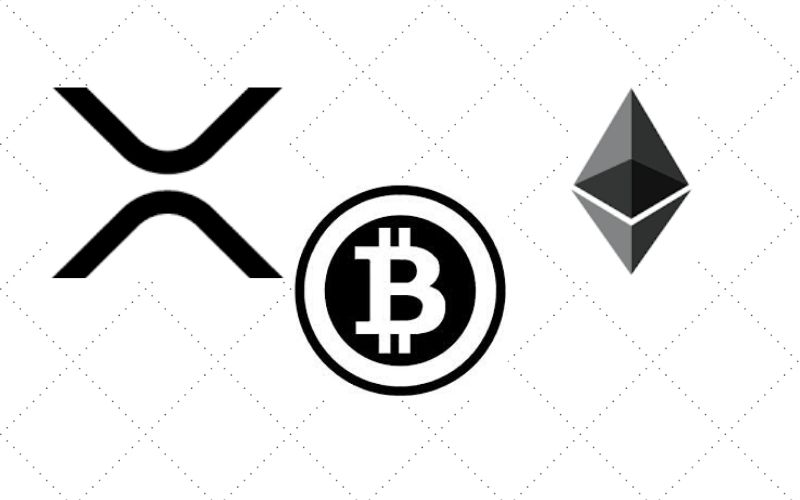Ripple, the cross-border payment firm, based in San Francisco has released a detailed overview of digital asset regulation around the world, revealing countries that really support Bitcoin (BTC), Ethereum (ETH), and XRP.
In a report titled “The Last Mile Playbook for Global Payments”, Ripple sheds light on the level at which some countries in key remittance markets support digital assets like Bitcoin (BTC), Ethereum (ETH), and XRP.
In the United States, the San Francisco based payment startup highlights that the Commodity Futures Trading Commission has made it official that Bitcoin (BTC) is a commodity.
Ripple also stated that the current chairman of the agency, Heath Tarbert, believes that Ethereum (ETH) is also a commodity. In an effort to drive adoption of XRP in the world of cross-border payments, the fintech has been able to work regulators around the world.
The payment firm released its opinion on the global regulation of digital currency, after working with regulatory bodies across the world.
United States
“Legal status of a token or coin dependent on its individual characteristics, which determines whether existing regulations apply (i.e. does the token confer rights and is it a security?). CFTC has ruled that BTC and other digital assets are commodities…
Exchanges must register with FinCEN as a money service business, obtain money transmission licenses (MTLs) from certain states and ‘Bitlicense’ if services touch New York…
Financial institutions treat the decision to engage in digital asset activity as a risk-based analysis.”
Mexico
“XRP is considered a ‘virtual asset’ that is freely tradable by non-financial institutions. Financial institutions must obtain approval from the central bank to transact in a particular virtual asset, and even then may only do so for internal purposes.
Exchanges must meet specific guidance on AML requirements…
Certain activities that rely on traditional banking rails may be viewed as requiring authorization under newly adopted laws (e.g. providing custody of fiat currency).”
Australia
“Legal status of a token or coin dependent on its individual characteristics, which determines whether existing regulations apply (i.e. does the token confer rights and is it a financial product?).
[Crypto exchanges] must register with Austrac, the local financial crimes regulator…
A digital asset may be treated as an asset that is held or traded and not as money or a currency. Certain activities could deem an entity to be categorized as a ‘remittance provider.’”
Argentina
“No specific classification of digital assets. FX regulations limit purchase of digital assets via credit or debit and must transfer funds to the exchange account through non-card payment rails.
[Exchanges are] not subject to licensure or registration. Currently not subject to anti-money laundering (AML) regimes, but likely to change soon…
Foreign exchange laws and currency controls are a potential hurdle.”
Colombia
“Although Colombia’s Central Bank has issued public remarks recognizing digital assets and warning against potential risks, financial watchdogs have not yet taken an official position or adopted a specific regulatory framework. Banks are largely blocked from providing services to digital asset companies.”
Europe (SEPA)
“Although nations in the EU (and EEA) conform to general standards (for example, set by the European Commission and/or European Central Bank), each individual region may have a particular stance on both digital assets in general as well as whether or not a financial institution can hold a digital asset. Therefore, it is largely a facts and circumstances analysis…
Exchanges in EU regions must comply with the Fifth Anti-Money Laundering Directive (5AMLD), which requires each country to transpose 5AMLD into local law.”
Peru
“No specific classification of digital assets…
[For exchanges,] money exchange activities are subject to AML/ CFT obligations and must be listed in the register maintained and published by the local regulator.”
Nigeria
“No specific classification of digital assets… Foreign exchange laws and currency controls are a potential hurdle. The ‘last mile’ rate that a beneficiary receives may be impacted by the regulatory status of a local market participant.”
[Exchanges are] not subject to licensure, registration or any specific guidance from regulators, including AML authorities.”
Philippines
“Philippines SEC is working with the Central Bank to implement a new framework for digital assets. Date of implementation is unknown…
[For exchanges,] licensure with the Central Bank required.”
Thailand
“Thailand is positive on digital assets with regulations in place permitting and regulating the trading of digital assets…
[Trading Platforms] must be licensed as a Digital Asset Exchange by the SEC.”
Brazil
“No specific classification of digital assets…
[Exchanges are] not subject to licensure, registration or any specific guidance from regulators, including AML authorities.
Foreign exchange laws and currency controls are a potential hurdle.”
The full report released by Ripple can be seen here
